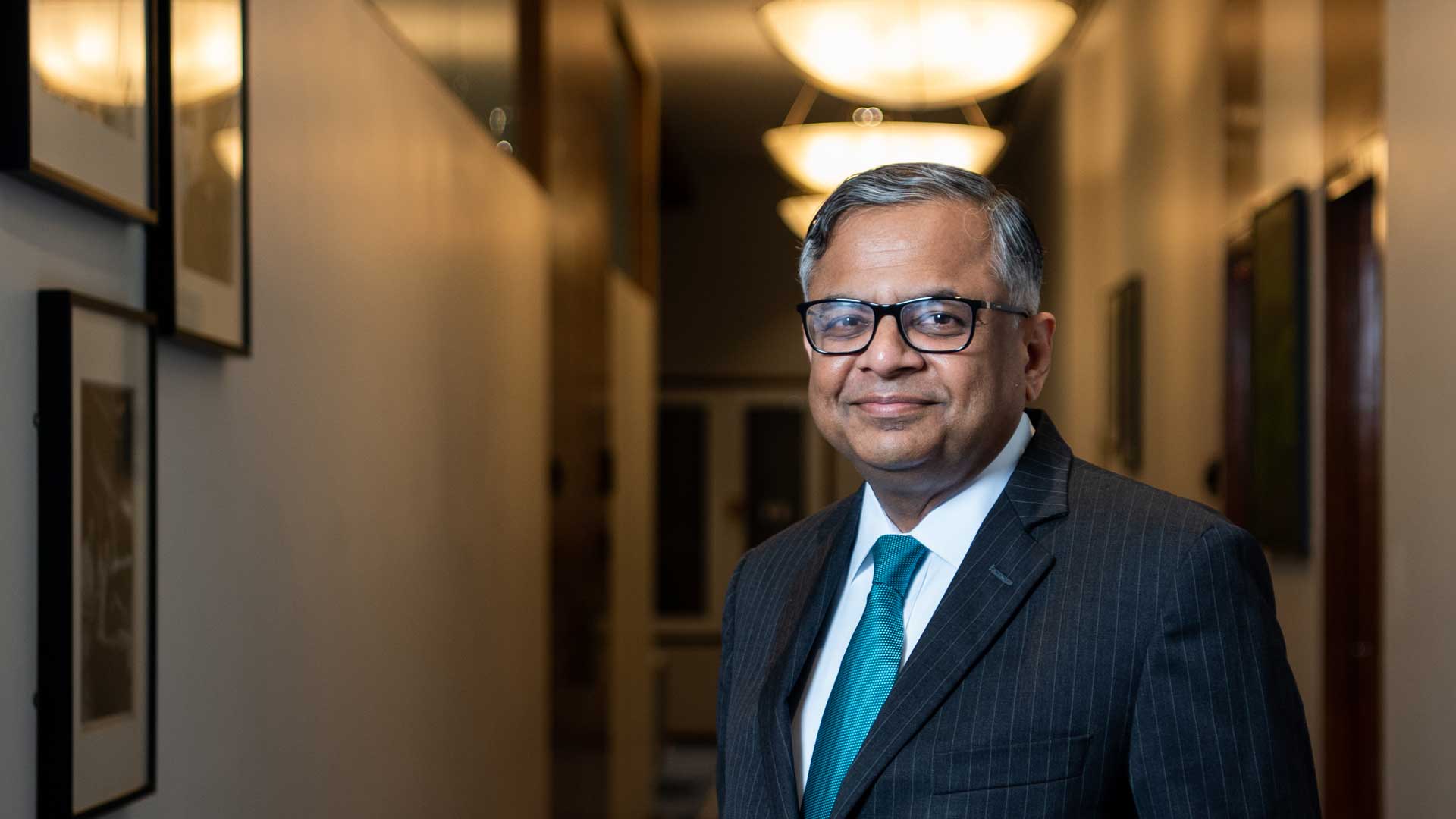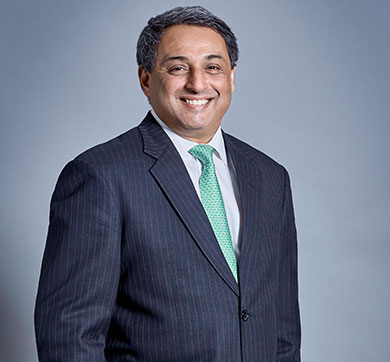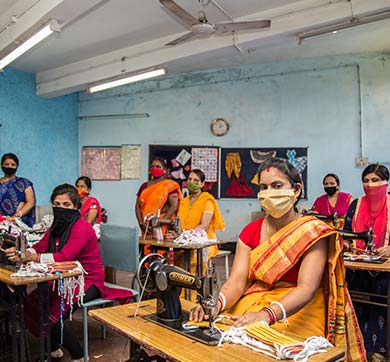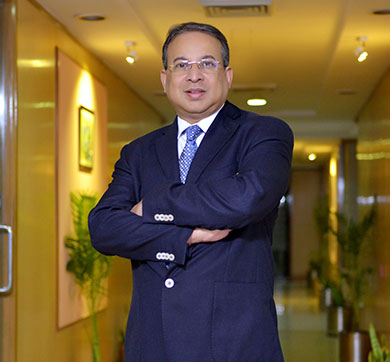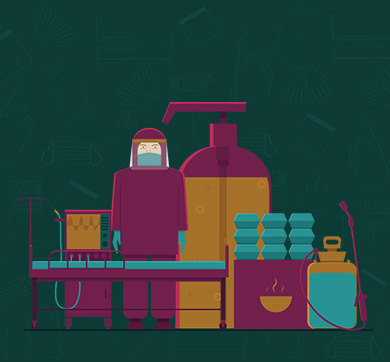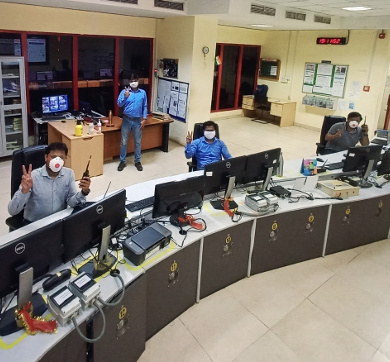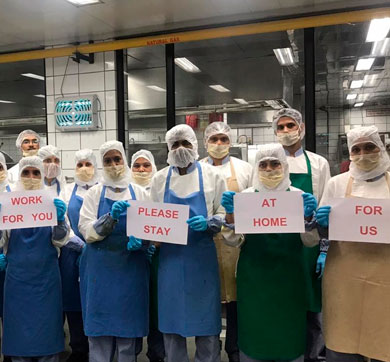July 2020 | N Chandrasekaran | 1,277 words | 5-minute read
For our generation, there is little that compares to the six-month period we have just experienced due to the Covid-19 pandemic. Travel, meetings, office, school and socializing have all fallen victim. Overnight, we have had to reimagine how we work. Through all of these rapid changes, I continue to be deeply impressed and gratified by the adaptability and resilience our people have displayed.
Under the leadership of Mr Ratan N Tata, we committed INR 1500 crore as a group to Covid-19 relief. Tata employees have, in addition, contributed tens of crores towards various response projects.
The past few months have been very challenging, but they have also been a great demonstration of the value of collaboration. I am proud of how we have worked together to battle this disease. Now, as we navigate the uncertain journey into the post-pandemic future, we will need to respond according to our principles of simplicity, synergy and scale and, above all, to foster the mindset of ‘One Tata’. Collaboration has been our watchword, and the pandemic has shown the importance of living by our principles.
Equipment
A significant Covid-19 outbreak in India would quickly result in an acute shortage of ventilators, personal protective equipment (PPE) kits, masks and gloves, as well as Covid-19 testing kits. Amid soaring global demand, purchasing can be very difficult and lockdown makes guaranteed delivery problematic. We looked at this problem and pooled our knowledge to do more as a group than any one business could do alone.
Under the leadership of Mr Ratan N Tata, we committed INR 1500 crore as a group to Covid-19 relief. Tata employees have, in addition, contributed tens of crores towards various response projects.
Drawing on the procurement expertise across Tata Steel, Tata AutoComp Systems and Tata Consultancy Services (TCS), we orchestrated a plan to buy large quantities of medical supplies from China, the US, South Korea and domestic sources.
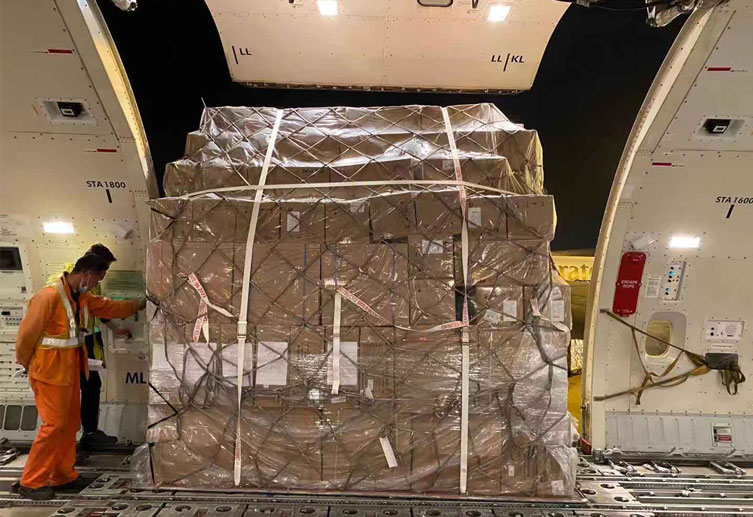
Our teams visited ventilator suppliers and underwent training in installation to help guide medical staff in India. To date, over a thousand ventilators and respirators, 400,000 PPE kits, 3.5 million masks and gloves, and 350,000 testing kits have been procured. The result of the group’s collaboration was a series of interventions that were life-saving.
Testing
This pandemic will not be controlled unless we can test at scale.
Polymerase chain reaction (PCR) kits are a scarce commodity; reagents for testing have to be imported; and sample collection, processing and transport require specialised equipment and trained personnel. The Tata group has invested in technology to make testing easier, faster and cheaper.
We completed a research pilot, with the help of the country’s most eminent scientists, that proved the value of a ‘Minimum Testing Maximum Intelligence’ approach in the Kolar district of Karnataka. This process uncovered evidence of silent transmission among high-risk groups such as health workers and police personnel which enabled us to predict the spread of the disease at a time when Kolar had no confirmed positive Covid-19 cases.
A detailed standard operating procedure of the testing strategy for national scaling was handed over to public health agencies to incorporate in lockdown exit efforts. Currently, the Kolar model is being adopted and refined in Jamshedpur.
Our investments in two novel testing technologies will not only help the Covid-19 fight but also have a huge potential beyond, for instance, in the diagnosis of other infectious diseases and genetic diseases, as well as in the treatment for cancer. Both technologies are expected to be scaled up within the next quarter.
Capacity
Outbreaks of Covid-19 around the world have shown that if the health system is overwhelmed, the consequences will be higher mortality rates. India needs many more quarantine and isolation facilities, ICU beds and dedicated Covid-19 treatment centres.
Co-ordinated action across the group has provided a boost to India’s health capacity. Tata Sons, supported by Tata Projects, has helped local governments and municipal corporations expand the number of beds, treatment centres and isolation facilities by leveraging the group’s network of real estate assets and hospitals.
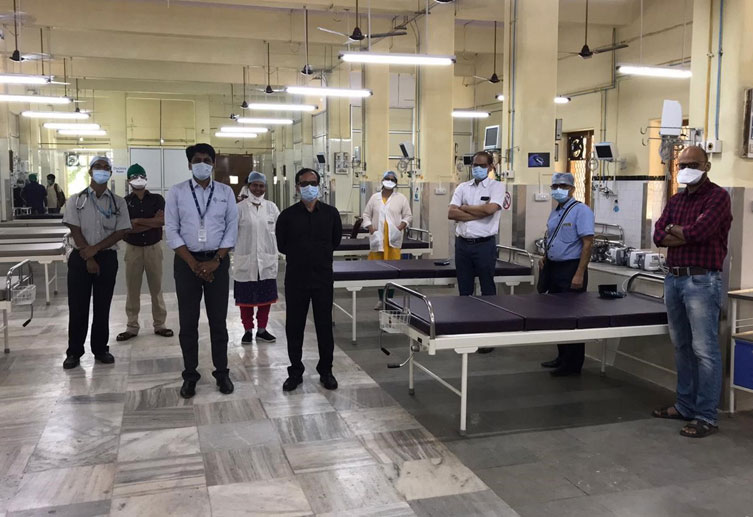
Added to this, we are in the process of setting up entirely new Covid treatment facilities. This was made possible by inter-group co-operation: teams from Voltas, Tata Steel and Tata Consulting Engineers, as well as medical experts from Tata Trusts, each providing support and expertise; and group companies like TCS, among others, providing access to leased commercial space. To date, 2,000 beds have either been added or are currently in progress.
Self-reliance
This increase in capacity will lead, if it is pointed in the right direction, to increased self-reliance. This is why we have tasked ‘Tata Medical and Diagnostics’ with spearheading efforts to produce ventilators and new testing technologies. Soon, it will be expanded to other medical devices and diagnostics.
Tata Motors, Tata AutoComp and Voltas have all brought together their respective expertise in design, manufacturing and procurement; and, in consultation with medical experts from Tata’s hospital network and senior government officials, identified products for mass production. We’ve also started producing our own PPE kits — with over 9,000 distributed to date — to address immediate shortages.
Technology
The power of technology will underlie the future success of healthcare delivery. Under the aegis of Tata Digital, we have recrafted the Tata Bridgital platform to provide a range of services for users registered on the Aarogya Setu contact tracing app. These include Covid-19 awareness, screening and risk assessment to virtual consultation and triage. Over 3,500 virtual consultations have been provided by doctors on the platform since its launch in May 2020.
Tata Bridgital Covid Safety Services, another technology-led application, helps companies come out of lockdown safely by assessing the work profile and risk levels of a business, and connecting staff to medical personnel.
Under the aegis of Tata Digital, we have recrafted the Tata Bridgital platform to provide a range of services for users registered on the Aarogya Setu contact tracing app.
AirAsia, Tata Steel and Trent are all using the model, which has the potential for setting the standard for protocols across the country.
Sustenance
Finally, extraordinary times require us to do some extraordinary things.
Over the past few months, fifteen Tata group companies have worked to scale meal and food grain provision and provide accommodation across the country. The Indian Hotels Company Limited (IHCL) has distributed over two million meals to healthcare professionals and migrant workers, including to over 20 hospitals in Mumbai, Delhi, Bengaluru, Agra and Coimbatore. The company worked with Tata Trusts to support the Mumbai police with daily meals.
Tata Power, Tata Consumer Products, Tata Chemicals, Tata Motors, Tata Advanced Systems Ltd, Titan and Tata Communications each undertook efforts to keep meals flowing to migrant and frontline workers, and those in need across townships, factory locations and settlements where they are located.
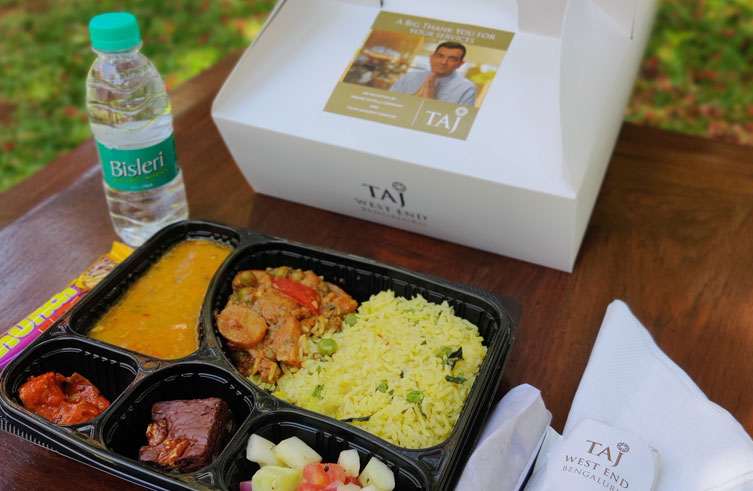
IHCL also opened the doors of its various hotels, including properties like Taj Mahal Palace and Taj Lands End in Mumbai, for medical professionals. These rooms helped doctors and nurses spend less time commuting, thereby lowering the risk of viral transmission. Various Ginger properties across the country have also offered rooms for quarantine purposes.
Conclusion
Working as One, deploying our expertise, collaborating to increase capacity, increasing national self-reliance, deploying technology for creative solutions, helping people in tough times — these are the themes of this extraordinary time.
I would also like to acknowledge the professionalism and hard work of all those who stood tall, who raised their hands when others would shy away.
The experience of our combined Covid-19 response has shown that the sum of our group’s efforts is so much more than its individual parts. The breadth and scale of our interventions is testament to the nation-building orientation that Tata stands for. I would also like to acknowledge the professionalism and hard work of all those who stood tall, who raised their hands when others would shy away. We have shown that when we come together, to collaborate as One Tata, we can accomplish more than we can ever imagine.
About the Author
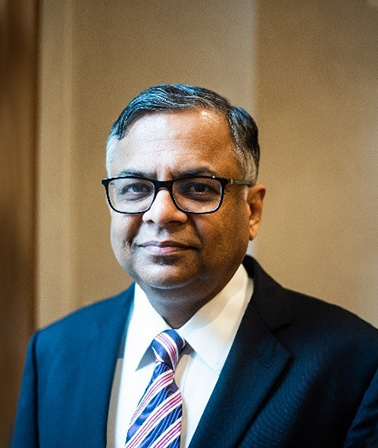
N Chandrasekaran, Chairman, Tata Sons



